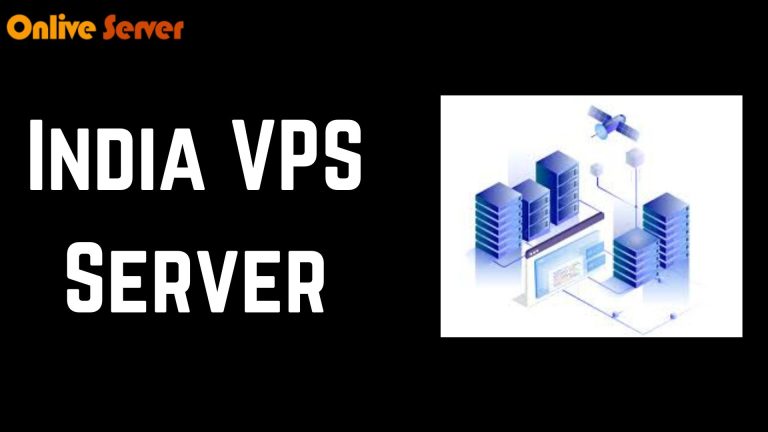Introduction to Windows VPS Server
In the rapidly evolving landscape of information technology, the demand for efficient and scalable server solutions is higher than ever. One such solution that has gained significant popularity is the Windows VPS (Virtual Private Server) server. Combining the advantages of both shared hosting and dedicated servers, a Windows VPS server offers a versatile platform for hosting websites, applications, and other digital assets. In this article, we will delve into the world of Best VPS server, exploring their features, benefits, and best practices.
Understanding Windows VPS Server
A Cheap VPS server is a virtualized instance of a physical server that runs a Windows operating system. Unlike shared hosting, where multiple users share the same server resources, and dedicated servers, which provide an entire physical server to a single user, VPS servers offer a middle ground. Each Windows VPS server exists within a larger physical server, isolated from other VPS instances, providing users with a private and customizable environment.
Features of Windows VPS Server
Isolation: One of the standout features of Windows VPS servers is their isolation. Each VPS instance operates independently, ensuring that the activities and resource usage of one user do not affect others on the same physical server.
Dedicated Resources: While shared hosting divides server resources among numerous users, a Windows VPS server provides dedicated CPU, RAM, storage, and bandwidth. This allocation ensures consistent performance and minimizes the risk of resource bottlenecks.
Customization: Windows VPS servers offer a high degree of customization. Users have full administrative access, allowing them to install software, configure settings, and even choose the operating system of their preference.
Scalability: As businesses and websites grow, so do their resource requirements. Windows VPS servers can be easily scaled up or down, enabling users to adapt to changing demands without major disruptions.
Cost-Efficiency: Compared to dedicated servers, Windows VPS servers are more budget-friendly. Users can access the benefits of a dedicated environment without bearing the full cost of a physical server.
Remote Accessibility: Windows VPS servers can be accessed remotely from anywhere with an internet connection. This feature facilitates management, troubleshooting, and updates without needing direct physical access to the server.
Benefits of Windows VPS Server
Enhanced Performance: With dedicated resources, Buy VPS server offer superior performance compared to shared hosting. This translates to faster loading times and smoother user experiences.
Reliability: The isolation provided by Best VPS server enhances their reliability. Problems in one VPS instance are less likely to affect others, minimizing the risk of downtime.
Security: Cheap VPS server provide a more secure environment compared to shared hosting. Users have their own isolated space, reducing the potential attack surface and vulnerability to security breaches.
Customizability: The ability to tailor the server environment to specific needs is a significant advantage. Users can install custom software, adjust configurations, and implement security measures as they see fit.
Scalability: As traffic and resource requirements grow, VPS servers can be easily upgraded to accommodate increased demands. This scalability eliminates the need for frequent migrations.
Cost Savings: Windows VPS servers offer cost savings over dedicated servers, making them an attractive choice for businesses and individuals seeking dedicated resources without the high costs.
Best Practices for Windows VPS Server Management
Regular Backups: Perform routine backups of your Windows VPS server to safeguard data in case of unexpected incidents.
Security Measures: Implement robust security practices, including firewalls, regular updates, and strong passwords, to protect your server from threats.
Resource Monitoring: Keep an eye on resource usage to ensure optimal performance. Scaling up may be necessary if you notice consistent resource constraints.
Software Updates: Keep your operating system and software up to date to patch vulnerabilities and benefit from the latest features.
Remote Access Security: If using remote access tools, ensure they are secure and well-configured to prevent unauthorized access.
Regular Maintenance: Perform routine maintenance tasks, such as clearing cache and optimizing databases, to keep your server running smoothly.
Conclusion
Linux VPS server offer a powerful and flexible solution for hosting websites, applications, and other digital assets. Their combination of isolation, dedicated resources, customization options, and scalability make them a preferred choice for businesses and individuals seeking reliable and efficient server hosting. By understanding the features, benefits, and best practices associated with Windows VPS servers, you can make informed decisions about integrating them into your IT infrastructure.
(FAQs) About Windows VPS Server
Q1. What is a Windows VPS server?
A Windows VPS (Virtual Private Server) is a virtualized instance of a physical server running a Windows operating system. It offers dedicated resources, customization options, and isolation from other users, striking a balance between shared hosting and dedicated servers.
Q2. How is a Windows VPS different from shared hosting?
In shared hosting, multiple users share the same server resources, which can lead to performance inconsistencies. A Windows VPS provides dedicated resources, ensuring better performance and isolation for each user.
Q3. What are the benefits of using a Windows VPS server?
Windows VPS servers offer enhanced performance, reliability, security, customizability, scalability, and cost savings. Users can experience better loading times, increased control, and the ability to scale resources as needed.
Q4. Can I install my own software on a Windows VPS server?
Yes, one of the advantages of a VPS server is that you have full administrative access and can install your own software, configure settings, and customize the environment to your requirements.
Q5. How do I ensure the security of my VPS server?
To enhance security, implement firewalls, keep your operating system and software updated, use strong passwords, and regularly monitor for any unusual activity. Following best security practices will help protect your server from potential threats.







